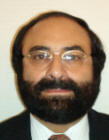
|
|
Recent findings from the neural and behavioral sciences have shown that central nervous system (CNS) structure is not as limited as once thought. Basic neuroscience discoveries have shown that central nervous system cells, if damaged, have potential for remyelinization and axonal repair which can take place years post damage from injury or disease. It is also now known that the central nervous system can have both dendrite and axonal sprouting in its attempt to regain integrity. These findings have already influenced emergency medicine and acute care to develop and implement procedures that preserve neural tissue after damage. Perhaps, the most intriguing finding is the brain's ability to use alternate cell tissue to replace the function of destroyed cells. While the functional correlates of such neural repair was once thought to be automatic, it is now becoming clear that to maximize this neural potential specific learning techniques at the neuronal level are necessary. Advanced Biofeedback and Neurofeedback procedures are the techniques best suited for maximizing this potential and will increasingly become the methods for gaining ultimate function after central nervous system damage. As more neural tissue is preserved in these patients with advanced trauma medicine techniques along with advancements in Biofeedback and Neurofeedback, individuals with central nervous system damage will be able to gain significant increases in function that were previously considered unattainable.
Bernard S. Brucker, Ph.D., ABPP University of Miami School of Medicine Biographical Sketch Dr. Bernard S. Brucker is Associate Professor in the Departments of Psychiatry and Behavioral Sciences, Orthopaedics and Rehabilitation, and Radiology at the University of Miami-School of Medicine. He is a psychologist, Board-certified in Rehabilitation Psychology, who has been a leader in the field of rehabilitation and is currently the Director of the Biofeedback Laboratory at the University of Miami School of Medicine / Miami Jewish Home and Hospital. He has been Chief of the Division of Psychology at the University of Miami / Jackson Memorial Center from 1981 to 2005. He is the past President of the Division of Rehabilitation Psychology of the American Psychological Association and the recent past Chairman of the Brain and Spinal Cord Injury Advisory Council for the State of Florida. Dr. Brucker is currently President of the American Board of Rehabilitation Psychology, President of the Academy of Rehabilitation Psychology, Member of the Board of the American Board of Professional Psychology, President of the Council of Presidents of Psychology Specialty Academies, President of the Florida Brain Injury Association and past Board Member of the Association of Applied Psychophysiology and Biofeedback. Dr. Brucker has received the Gil Moss Award from the National Spinal Cord Injury Association for outstanding scientific and clinical contribution to spinal cord injury, the Exceptional Achievement Award from the Institute of Electrical and Electronics Engineers for microprocessor control of movement in paralyzed muscle, the Lifetime Achievement Award from the Dade County Chapter of the Florida Psychological Association, the Distinguished Service Award, Division of Rehabilitation Psychology, American Psychological Association and the Karl F. Heiser Presidential Award from the American Psychological Association. Dr. Brucker is one of the founders, and the original Co-Director of the Miami Project to Cure Paralysis. He is world renowned for developing specific behavioral procedures for restoring function to people with physical disabilities and has numerous publications, chapters, and presentations at scientific meetings. Other Products by Bernard Brucker 1) The Role of Biofeedback and Neurofeedback in Neuroplasticity
To View Comments or Join the Conversation: |
Most Viewed of all Products
Inner Game of Leadership: Principles for Sustaining Peak Performance Under Pressure
|

